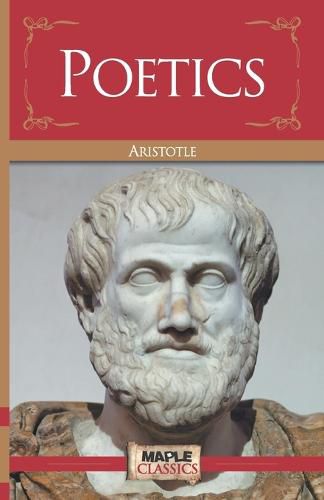Readings Newsletter
Become a Readings Member to make your shopping experience even easier.
Sign in or sign up for free!
You’re not far away from qualifying for FREE standard shipping within Australia
You’ve qualified for FREE standard shipping within Australia
The cart is loading…






This title is printed to order. This book may have been self-published. If so, we cannot guarantee the quality of the content. In the main most books will have gone through the editing process however some may not. We therefore suggest that you be aware of this before ordering this book. If in doubt check either the author or publisher’s details as we are unable to accept any returns unless they are faulty. Please contact us if you have any questions.
Every tragedy consists in tying and untying of a knot. A polymath and a philosopher, Aristotle was one of the greatest minds of his time. Aristotle’s Poetics, written in 335 BC, is one of the foremost and most notable treatises on Literary Theory and it focuses on the tragic element in drama and poetry. With examples from Aeschylus, Sophocles, and Euripides - the three greatest tragic playwrights, Aristotle explains the six elements of a tragedy which evoke fear and pity in man, thus resulting in catharsis and altered behaviour to avoid a similar fate as the tragic hero. A perusal of Poetics will enhance the understanding of dramatic tragedy and therefore, perceiving classic drama in a new light.
$9.00 standard shipping within Australia
FREE standard shipping within Australia for orders over $100.00
Express & International shipping calculated at checkout
This title is printed to order. This book may have been self-published. If so, we cannot guarantee the quality of the content. In the main most books will have gone through the editing process however some may not. We therefore suggest that you be aware of this before ordering this book. If in doubt check either the author or publisher’s details as we are unable to accept any returns unless they are faulty. Please contact us if you have any questions.
Every tragedy consists in tying and untying of a knot. A polymath and a philosopher, Aristotle was one of the greatest minds of his time. Aristotle’s Poetics, written in 335 BC, is one of the foremost and most notable treatises on Literary Theory and it focuses on the tragic element in drama and poetry. With examples from Aeschylus, Sophocles, and Euripides - the three greatest tragic playwrights, Aristotle explains the six elements of a tragedy which evoke fear and pity in man, thus resulting in catharsis and altered behaviour to avoid a similar fate as the tragic hero. A perusal of Poetics will enhance the understanding of dramatic tragedy and therefore, perceiving classic drama in a new light.